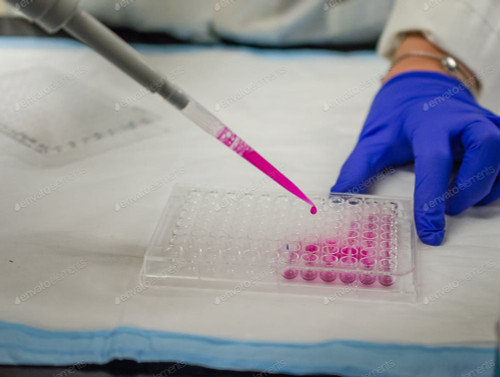Product Description
anti- PTRH2 antibody is available at Gentaur for Next week Delivery.
Purification: Immunogen affinity purified
Background: The protein encoded by this gene is a mitochondrial protein with two putative domains, an N-terminal mitochondrial localization sequence, and a UPF0099 domain. In vitro assays suggest that this protein possesses peptidyl-tRNA hydrolase activity, to release the peptidyl moiety from tRNA, thereby preventing the accumulation of dissociated peptidyl-tRNA that could reduce the efficiency of translation. This protein also plays a role regulating cell survival and death. It promotes survival as part of an integrin-signaling pathway for cells attached to the extracellular matrix (ECM), but also promotes apoptosis in cells that have lost their attachment to the ECM, a process called anoikos. After loss of cell attachment to the ECM, this protein is phosphorylated, is released from the mitochondria into the cytosol, and promotes caspase-independent apoptosis through interactions with transcriptional regulators. This gene has been implicated in the development and progression of tumors, and mutations in this gene have been associated with an infantile multisystem neurologic, endocrine, and pancreatic disease (INMEPD) characterized by intellectual disability, postnatal microcephaly, progressive cerebellar atrophy, hearing impairment, polyneuropathy, failure to thrive, and organ fibrosis with exocrine pancreas insufficiency (PMID: 25574476). Alternative splicing results in multiple transcript variants encoding different isoforms..
Immunogen: peptidyl-tRNA hydrolase 2
Synonyms: BIT1, PTH2
Reactivity: Human, Mouse, Rat
Tested Application: ELISA, WB, IHC, IF
Recommended dilution: WB: 1:500 - 1:2000; IHC: 1:50 - 1:200; IF: 1:10 - 1:100
Image 1: Immunohistochemistry of paraffin-embedded rat brain using FNab06951(PTRH2 antibody) at dilution of 1:100
Image 2: .
Image 3:
Image 4: HEK-293 cells were subjected to SDS PAGE followed by western blot with FNab06951(PTRH2 antibody) at dilution of 1:1000
Gene ID: 51651
Research Area: Metabolism
Uniprot ID: Q9Y3E5
 Euro
Euro
 British Pound
British Pound
 US Dollar
US Dollar








